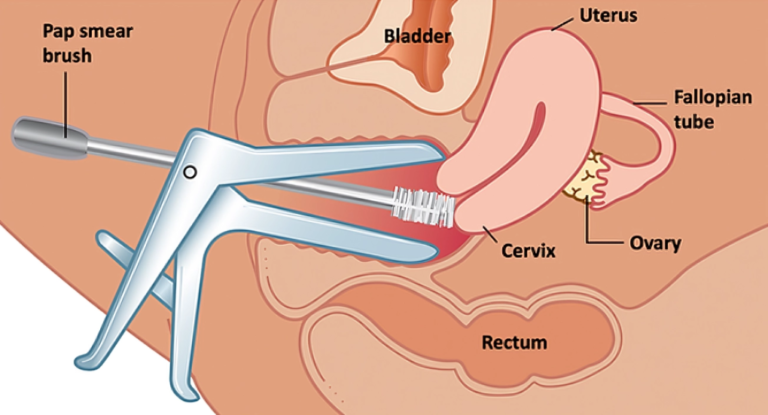The Role Of Midwives In Modern Maternity Care
In the landscape of modern healthcare, the role of midwives has become increasingly prominent, offering a holistic approach to maternity care that emphasizes personalized support and empowerment for expectant mothers. Midwives, often described as the guardians of normal childbirth, play a vital role in ensuring the well-being of both mother and child throughout the pregnancy, labor, and postpartum periods. Their holistic approach focuses not only on the physical aspects of childbirth but also on emotional and psychological support, making them invaluable members of the healthcare team.
To Know More About It Please Click Here
Historical Context
The practice of midwifery dates back centuries, with midwives traditionally being the primary caregivers for pregnant women and their babies. Historically, midwifery was an essential part of communities, with knowledge and skills passed down through generations. However, with the medicalization of childbirth in the 20th century, the role of midwives diminished in many parts of the world as obstetricians became the primary caregivers for pregnant women.
Modern Revival
In recent decades, there has been a resurgence of interest in midwifery as women seek more personalized and holistic approaches to childbirth. Midwives are trained healthcare professionals specializing in pregnancy, childbirth, and postpartum care. They provide a range of services, including prenatal care, labor and delivery support, breastfeeding assistance, and postpartum care. Importantly, midwives emphasize the physiological aspects of childbirth, promoting natural and low-intervention approaches whenever possible.
Key Responsibilities
Midwives play a multifaceted role in modern maternity care, offering a continuum of care that extends from preconception to the postpartum period. Some of their key responsibilities include:
- Prenatal Care: Midwives provide comprehensive prenatal care, including physical examinations, prenatal screenings, and education on nutrition, exercise, and childbirth preparation. They work collaboratively with pregnant women to develop personalized birth plans that align with their preferences and values.
- Labor and Delivery Support: During labor, midwives offer continuous support to women, providing comfort measures, guidance, and advocacy. They monitor the progress of labor, assess the well-being of both mother and baby and intervene if necessary, collaborating with obstetricians or other healthcare providers as needed.
- Postpartum Care: After childbirth, midwives continue to support women during the postpartum period, offering guidance on newborn care, breastfeeding support, and emotional well-being. They monitor the physical and emotional recovery of mothers, providing referrals to additional support services when needed.
- Health Promotion and Education: Midwives are educators at heart, empowering women with knowledge and resources to make informed decisions about their maternity care. They provide guidance on healthy lifestyle choices, childbirth education classes, and community resources for prenatal and postpartum support.
Advantages of Midwifery Care
The involvement of midwives in maternity care offers numerous advantages for expectant mothers and their families:
- Personalized Care: Midwives prioritize individualized care, taking into account the unique needs, preferences, and cultural backgrounds of each woman.
- Continuity of Care: Midwifery care often involves a one-on-one relationship between the midwife and the woman throughout the pregnancy, labor, and postpartum periods, fostering trust and continuity of care.
- Promotion of Physiological Birth: Midwives advocate for physiological childbirth, promoting natural labor and delivery whenever possible while minimizing unnecessary interventions.
- Empowerment: Midwives empower women to actively participate in decision-making regarding their maternity care, promoting autonomy and informed choice.
- Reduced Intervention Rates: Research has shown that midwifery-led care is associated with lower rates of interventions such as cesarean sections, episiotomies, and labor inductions, leading to better outcomes for mothers and babies.
Challenges and Opportunities
Despite the many benefits of midwifery care, there are challenges that must be addressed to fully integrate midwives into the modern healthcare system. These include:
- Access to Care: Access to midwifery care may be limited in some regions, particularly in rural or underserved areas where there is a shortage of midwives and birthing facilities.
- Collaborative Practice: Collaborative relationships between midwives and other healthcare providers, such as obstetricians and pediatricians, are essential for optimal maternity care outcomes. Building effective interdisciplinary teams requires ongoing communication and mutual respect.
- Regulatory Barriers: Regulatory frameworks governing the practice of midwifery vary widely between countries and states, impacting the scope of practice and autonomy of midwives. Advocacy efforts are needed to promote regulatory reforms that support the full utilization of midwifery care.
- Education and Training: Ensuring that midwives receive comprehensive education and training is crucial for maintaining high standards of care. Investments in midwifery education programs and professional development opportunities are needed to equip midwives with the knowledge and skills necessary for modern maternity care.
conclusion
midwives play a vital role in modern maternity care, offering personalized, holistic, and woman-centered support throughout the childbirth journey. By promoting physiological birth, empowering women, and advocating for evidence-based practices, midwives contribute to positive maternal and neonatal outcomes while honoring the sacredness of childbirth. As the demand for personalized and empowering maternity care continues to grow, the role of midwives will remain indispensable in shaping the future of childbirth.
Also, Follow us on Instagram







